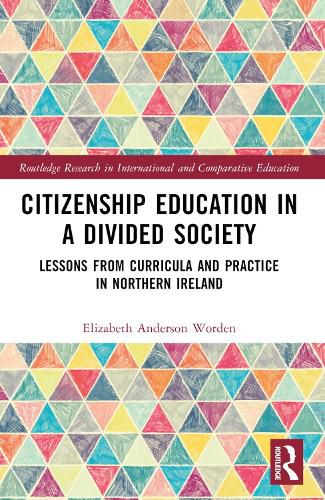Readings Newsletter
Become a Readings Member to make your shopping experience even easier.
Sign in or sign up for free!
You’re not far away from qualifying for FREE standard shipping within Australia
You’ve qualified for FREE standard shipping within Australia
The cart is loading…






This book examines the possibilities and realities of promoting citizenship, peace, and reconciliation through schooling in divided and post conflict societies.
With specific attention to the case of Northern Ireland and the Local and Global Citizenship (LGC) initiative, the book investigates the faltering progress to develop and teach school curricula aimed at promoting citizenship as well as peace, tolerance, and mutual understanding. Following an overview of the scholarship on citizenship education, the author provides a broad social and political historical context within which to understand the educational reforms and changes that have taken place in Northern Ireland, highlighting various education initiatives of the 1970s, 1980s, and 1990s that sought to foster understanding of "the other" and promote reconciliation. The book's focus then shifts to the implementation of LGC, which began in 2007. Despite initially strong political support and a considerable investment in terms of financial and human resources, LGC has had limited impact. The book analyzes the obstacles impeding its success, which include marginalization within the curriculum and competing conceptions of the purpose of education. A concluding chapter reflects upon what we can learn from LGC's implementation and highlights innovative recent initiatives to bring the young people of Northern Ireland together.
This book will appeal to scholars and students of education studies with interests in citizenship education, peace studies, educational policy, and curricula and practice.
$9.00 standard shipping within Australia
FREE standard shipping within Australia for orders over $100.00
Express & International shipping calculated at checkout
This book examines the possibilities and realities of promoting citizenship, peace, and reconciliation through schooling in divided and post conflict societies.
With specific attention to the case of Northern Ireland and the Local and Global Citizenship (LGC) initiative, the book investigates the faltering progress to develop and teach school curricula aimed at promoting citizenship as well as peace, tolerance, and mutual understanding. Following an overview of the scholarship on citizenship education, the author provides a broad social and political historical context within which to understand the educational reforms and changes that have taken place in Northern Ireland, highlighting various education initiatives of the 1970s, 1980s, and 1990s that sought to foster understanding of "the other" and promote reconciliation. The book's focus then shifts to the implementation of LGC, which began in 2007. Despite initially strong political support and a considerable investment in terms of financial and human resources, LGC has had limited impact. The book analyzes the obstacles impeding its success, which include marginalization within the curriculum and competing conceptions of the purpose of education. A concluding chapter reflects upon what we can learn from LGC's implementation and highlights innovative recent initiatives to bring the young people of Northern Ireland together.
This book will appeal to scholars and students of education studies with interests in citizenship education, peace studies, educational policy, and curricula and practice.